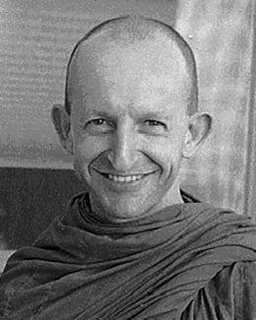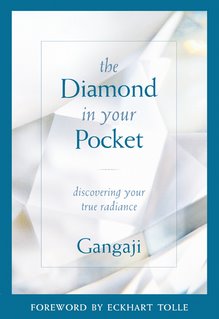
The Buddha advises us not to try to define the enlightened in conceptual terms because any conceptual definition can only fall short, can only be relatively true. The Buddha made very clear in the Theravada teaching just as much as in the scriptures of the Northern school that the ultimate perspective on things is the perspective of no fixed position, of actual realization … of Truth, abiding in that position of Awareness, rather than taking any kind of conceptual or idealistic position. That is our Refuge. Taking Refuge with Buddha is being that Awareness. So that we see that everything to do with our body, our feelings, our personality, our age, our nationality, our problems, our talents, all of these are simply attributes of the conditioned world that arise and pass away and there is awareness of those. The whole point of the practice is to constantly abide in that quality of Awareness.
Life is going to be frustrating and painful if we are looking for certainty and definition in terms of being a person, being some place - a being in time. It's only when we let go of the sense of I … , me … and mine … , of the sense of there being a person here who has anywhere to go to, or anywhere not to go to, that there is the clear abiding in Awareness.
The tendency of the mind is often to conceptualize that. You say, "OK, I'm just going to be aware," and you take that as an ideal and try to fill the mind with that thought. What will happen then is that the thought turns into an object, so rather than just resting in being … the knowing, we try to see what it is that is knowing. As Ajahn Chah would sometimes say - you're riding a horse and looking for the horse. We wonder, "Who is it that knows the knower?" "Who is it that knows the thing that's knowing the knowing?"
One can get the impression that there's some sort of infinite regression happening here, and that it's like falling off a cliff backwards. But it's not - because what happens is that when we let go of our sense of identity, then there is just the clear knowing. The mind rests in the bright, selfless, knowing, timeless state. And then the idea arises, "Oh, there is knowing." So rather than just resting in that pure knowing, we attach to the thought that there is something that is knowing. We're just fixing on that thought and then stepping out into the conditioned world. As we attach to any thought we're stepping away from that sense of pure knowing. If there is just pure knowing it's like being up against the back wall. As soon as we hold onto any thought we walk away from the wall. We're going out into experience, going out into attachment to some condition.
If we just allow the mind to relax and rest in that sense of knowing, in that purity of being, then there is liberation, there is freedom right at that point. At that point, the mind is aware of the sense of unity, of Suchness, there is the unifying vision which in Christian terms they call beatitude. The beatific vision is the vision of totality, of wholeness, the disappearance of any separateness. In this realisation there is no self - it's not you being with Ultimate Truth - there's just THIS … , the mind in its pure awakened state, Dhamma aware of its own nature.
The Lesser, The Greater, The Diamond and The Way
A talk given on a retreat held The City of 10,000 Buddhas, Ukiah, California, July 1991
Ajahn Amaro
December 24, 2004
From Dhamma Readings for Meditators
http://www.abhayagiri.org/index.php/main/article_print/170/
